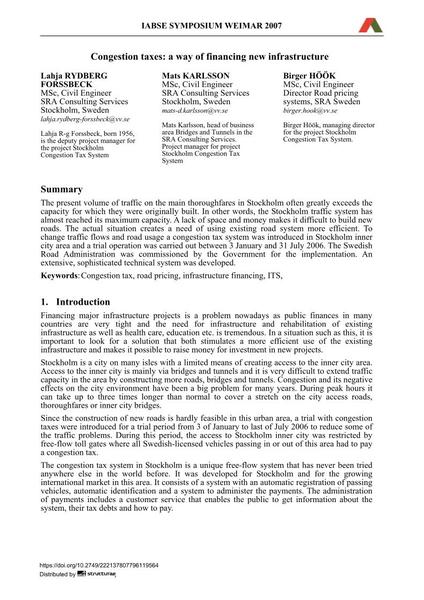Congestion taxes: a way of financing new infrastructure

|
|
|||||||||||
Détails bibliographiques
| Auteur(s): |
Lahja Rydberg Forssbeck
Mats Karlsson Birger Höök |
||||
|---|---|---|---|---|---|
| Médium: | papier de conférence | ||||
| Langue(s): | anglais | ||||
| Conférence: | IABSE Symposium: Improving Infrastructure Worldwide, Weimar, Germany, 19-21 September 2007 | ||||
| Publié dans: | IABSE Symposium Weimar 2007 | ||||
|
|||||
| Page(s): | 40-41 | ||||
| Nombre total de pages (du PDF): | 7 | ||||
| Année: | 2007 | ||||
| DOI: | 10.2749/222137807796119564 | ||||
| Abstrait: |
The present volume of traffic on the main thoroughfares in Stockholm often greatly exceeds the capacity for which they were originally built. In other words, the Stockholm traffic system has almost reached its maximum capacity. A lack of space and money makes it difficult to build new roads. The actual situation creates a need of using existing road system more efficient. To change traffic flows and road usage a congestion tax system was introduced in Stockholm inner city area and a trial operation was carried out between 3 January and 31 July 2006. The Swedish Road Administration was commissioned by the Government for the implementation. An extensive, sophisticated technical system was developed. |
||||
